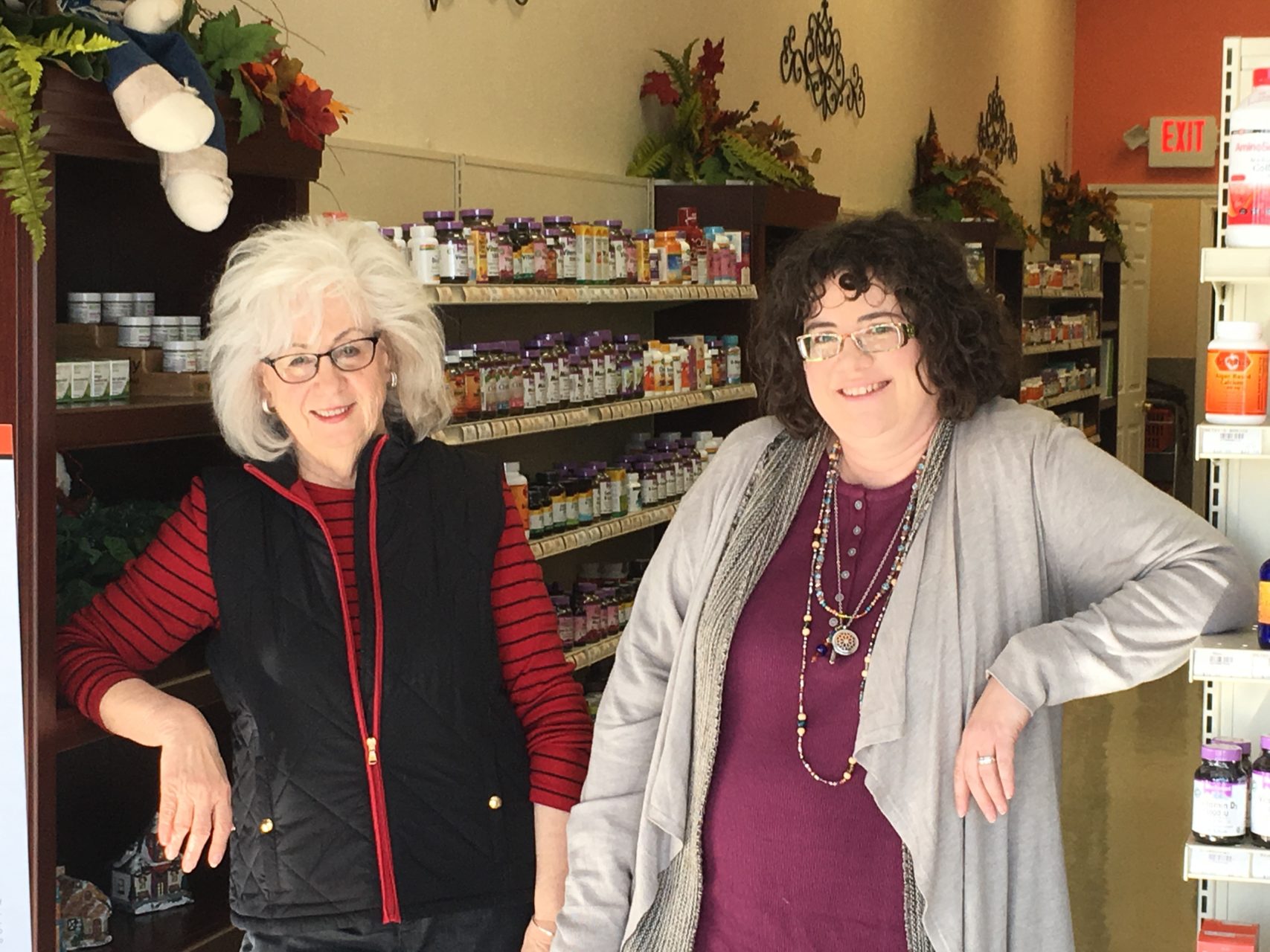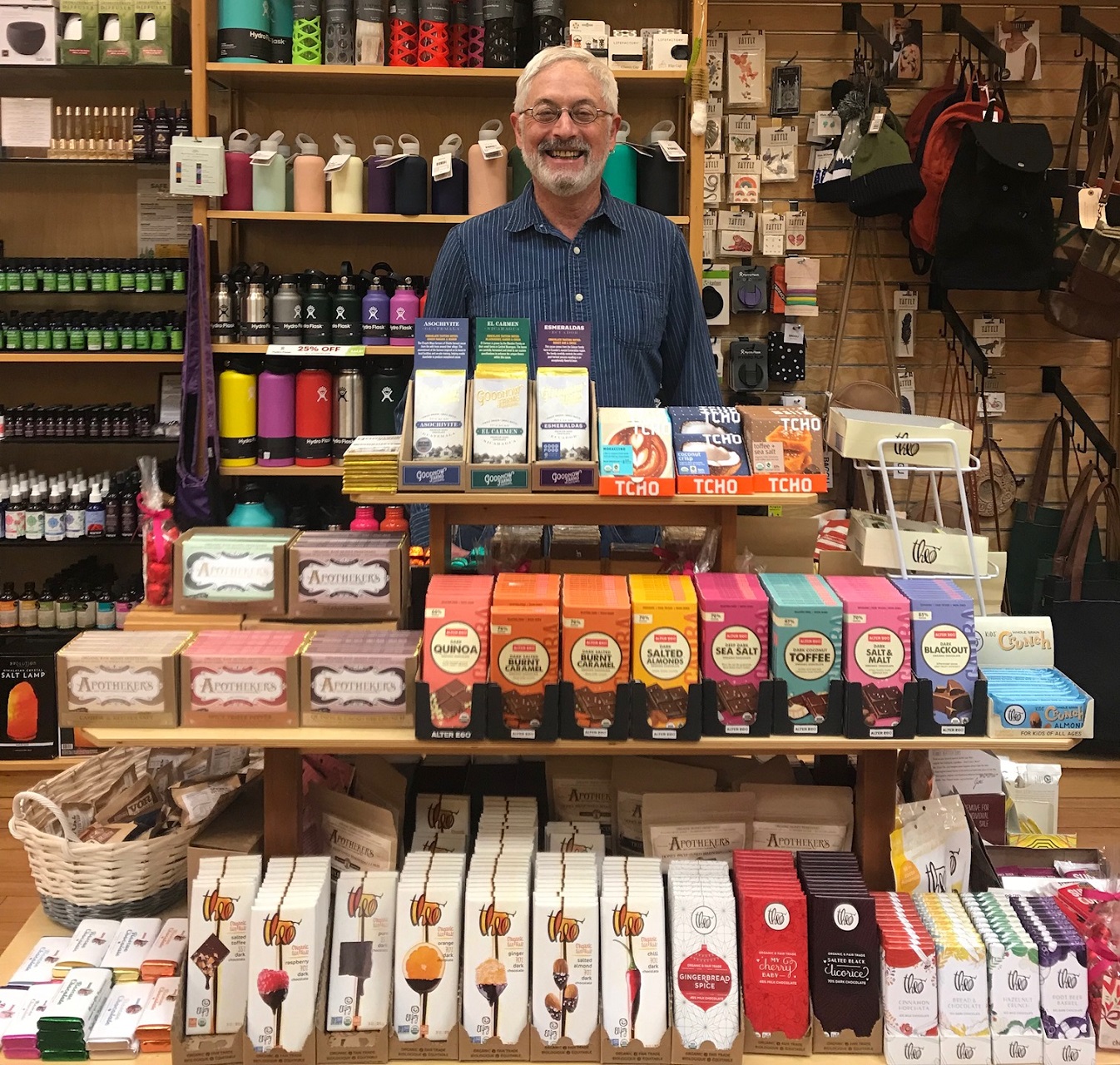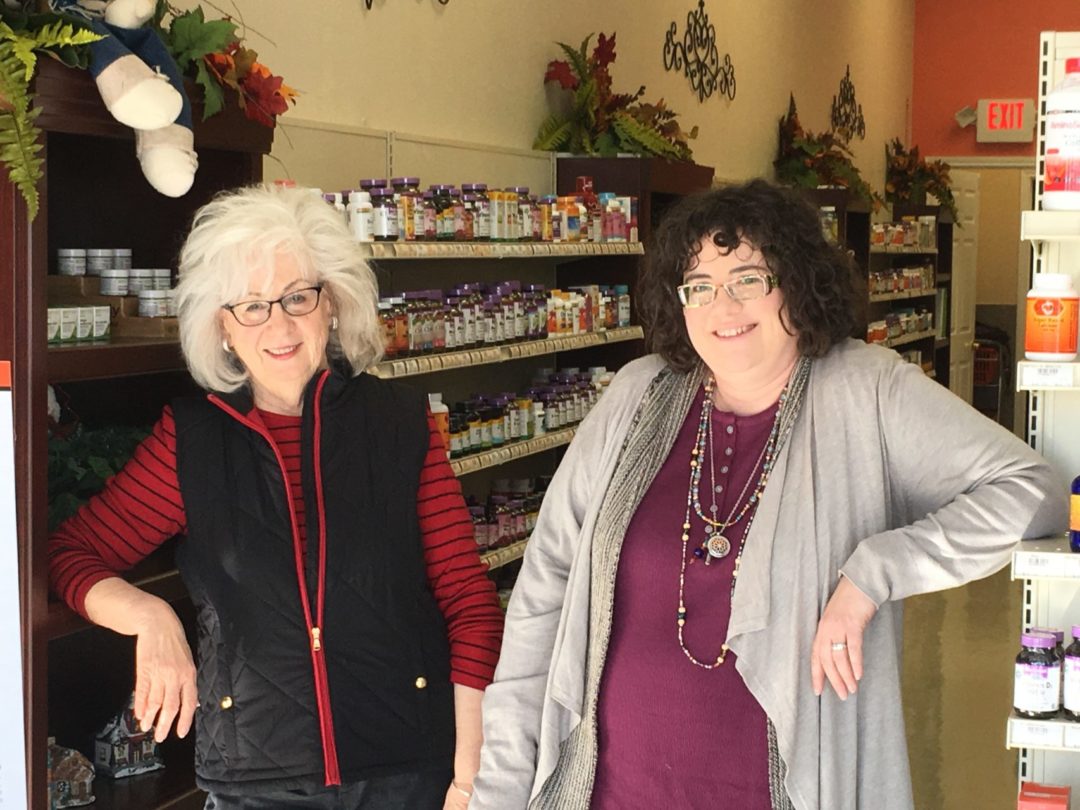
customers’ lives flood out from under them after Hurricane Harvey. Although the store opened within days, supplements were not top-of-mind for people struggling to meet their basic needs. Things finally started to take a turn for the better in January, giving a double reason to celebrate, although there is still devastation.
Betsy Billingslea and her daughter-in-law Ramona, who handles marketing and education, believe the preservation of the independents is essential to the health of the natural products industry. With that in mind, Betsy’s is taking a hard line on Minimum Advertised Price (MAP) and Betsy says she will only deal with vendors who are actively enforcing MAP. (See page 16.)
Still, you can teach an old gal new tricks, and Betsy’s is increasingly active on social media and exploring other forms of digital commerce. “You’ve got to get with the future,” she says.
Focus on Food ServiceGood Earth Natural Foods employs close to 500 people in Marin County, CA, and pulls in about $65 million in sales each year between its two stores — one in Fairfax and the other in Mill Valley. Good Earth and its “earthlings” will be 50 years old next year and Mark Squire, who started in 1969 as a 16-year-old high-school dropout and went on to buy the business in 1975, is now one of three owners.
“I really do believe it’s because of us taking the high road with food standards. We’ve always been committed to organics,” he says. “We give good customer service. I think we’re kind of lucky to be in the Bay Area. Our business has pretty much experienced a continual growth for the past 50 years. In other areas, price might be a barrier.”
The core of Good Earth’s business is food service and when they started it, thought it was a missing piece. “I put in our first hot food bar around 1985,” he says. “I still remember looking around at grocery stores and wondering why nobody did it. We literally kind of said, ‘Let’s make it happen.’ Every year we’ve grown and grown and grown. We know people who eat breakfast, lunch and dinner with us every day.”
Squire sits on the board of the Organic Trade Association and believes it’s part of his responsibility to the industry to invest the time to help prevent the encroachment of corruption into the system. “There’s a huge rising tide of consumer appreciation for organics,” he notes, and with that comes opportunists and the temptation to cut corners. Like many independents, Good Earth is tied intimately to its communities. It donates 3% of sales to local schools through its branded scrip card.
Through its School Lunch Kitchen, Good Earth also feeds hot organic school lunch options to about 1,300 kids per day at 14 schools in Marin County (nine private and five public). It co-created the program with some area schools based on parent demand. The program is about 15 years old and is a break-even proposition. In 2013, it helped donate the expertise and food to launch The Conscious Kitchen — a project of Teens Turning Green that replaced pre-packaged food in throw-away containers with a fresh local organic sustainable and non-GMO program.
Squire looks forward to the day when more schools restore kitchens in their cafeterias to cook, rather than reheat.
For now, “We make [the lunches], put it in vans and drive it around ,” Squire adds. “We’re really just doing it because we think it should be done.”
Expansion Plans“Business is good,” says Michael Kanter, chief visionary officer and co-founder with his wife Elizabeth Stagl of Cambridge Naturals in Massachusetts, now under the second-generation day-to-day management of his daughter Emily Kanter and her husband Caleb Dean. “Always complicated. Always challenging.” After 44 years, the store is opening a smaller second location this summer in a new health-and-wellness focused commuter building near the New Balance headquarters in Brighton — an emerging new neighborhood with an active fitness clientele.
The company took a stand at the end of 2016 and raised its minimum wage to a “living wage” for the region of $15 per hour. It also pays 100% of its full-time employees’ medical and dental insurance coverage. “We want our employees to live healthy lives and be able to show up every day for work with more confidence in their financial stability,” he said at the time and it’s worked to improve retention and bolster morale.

A far distance from its grocery store roots, Cambridge is now thriving as a niche store with an outstanding chocolate section — two custom-built chocolate bins filled with almost all hyperlocal organic and mostly dark chocolate.
Cambridge carries an unparalleled assortment of kombucha on tap and hundreds of teas. Kanter is growing increasingly engaged as a board member with the Independent Natural Food Retailers Association in connecting with other retailers to spread the value and worth of the independent.
He’s watching the public display as Whole Foods Market wrestles with an order-to-shelf inventory system that is reportedly causing major stress among employees there. “We have become a society that says data is what should rule the world,” Kanter says. “Data is like a God to us. I don’t want to dismiss that completely. But our business is booming and our business really started booming on Aug. 31, 2017 (two days after Amazon took ownership of Whole Foods Market).”
In the U.K, there is a Minister of Loneliness, Kanter adds, speaking to some of the isolating effects of technology and screens and the opportunity it presents to independents. “We all have to sell products, but the products are only part of the equation. Community is costly. It’s not as efficient. We represent something else besides our products.”
This child of the 60s is also ready to fight to preserve the right to keep selling CBD oil products. When asked if he was concerned about rumblings in Washington, D.C., he said, “Very. Of all the things on the market, they are trying to take this off. It’s a simple, safe effective product that can deal with a lot of people’s health problems. It’s brought in people who wouldn’t come in our stores otherwise. I think it’s outrageous. Enough is enough.”
Marketing and Getting the BasicsChris Schneider, co-owner with his brother Kevin of the 20,000-square-foot Mother Earth’s Storehouse in Kingston, N.Y., and smaller stores in nearby Saugerties and Poughkeepsie, has seen competition grow from grocery chains like Hannaford, Shop Rite and Tops.
Food service and deli at Mother Earth’s sit-down cafe is a growing business offering gourmet items like organic lattes and capuccinos. In a nod to consumer convenience, Schneider sees more hot pre-packed foods to go.
“We’re still doing very well with all the competition that’s online. There’s a great staff here (about 140) and training is a management priority.” he says.
Schneider plans to expand the dairy department to stock more from local farms in the Hudson Valley.
“If we do a really good job at fresh produce, our customers buy more,” he says. The business just turned 40 years old.
Mother Earth’s also serves up a generous loyalty program in which for every certain amount you buy, you get some back — averaging 3% in savings per visit. “We do a lot of promotions and spend up to 1.5% of sales on marketing,” Schneider adds.
From the Windy CityKi Kim has been operating Life Spring Health Foods in Chicago for more than 40 years. He has seven people on his payroll. “I try to match online prices,” he says. “In this Lakeview neighborhood, you see a lot of young people and most of our clients are under age 40. Business is OK, but it’s not like the old days.”WF
Published in WholeFoods Magazine March 2018










